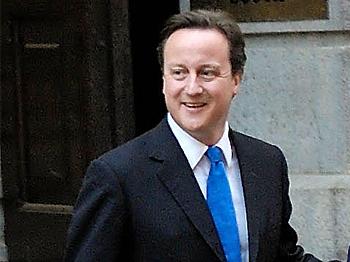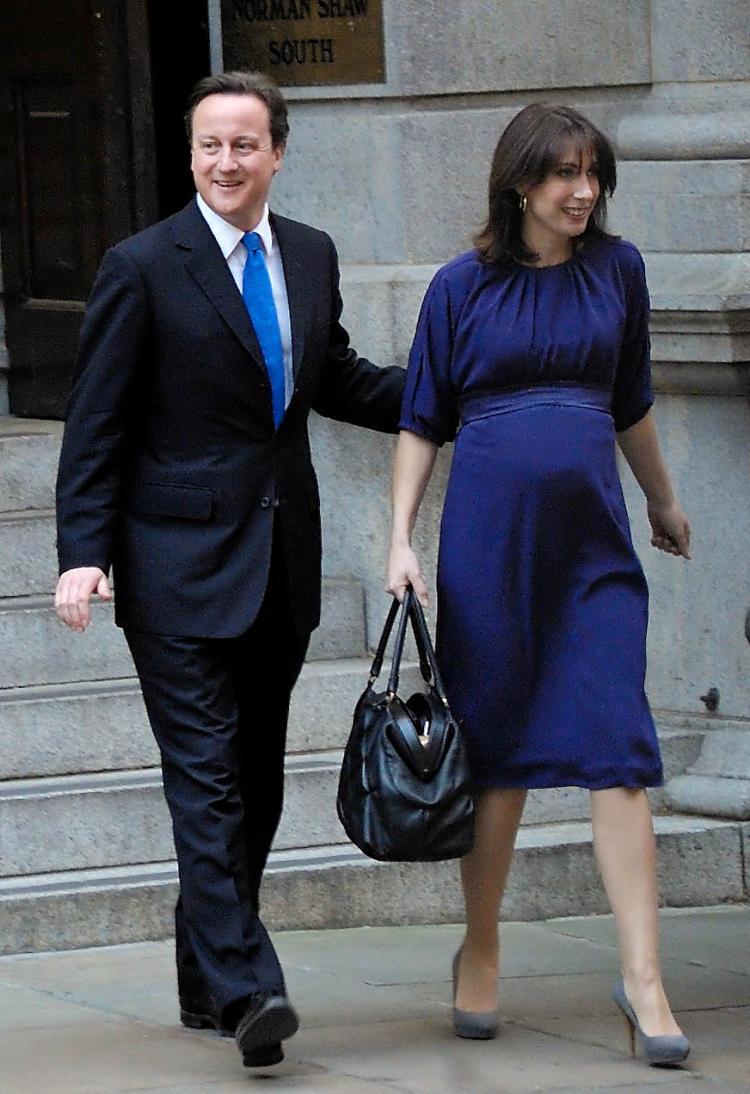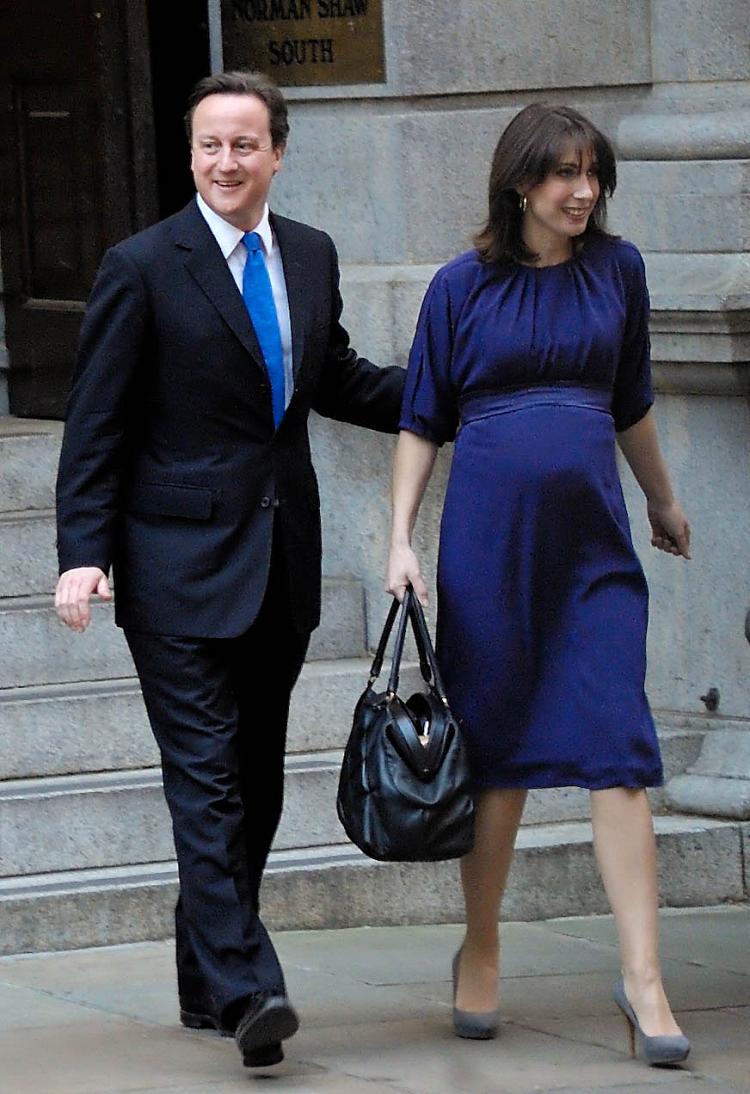Conservative David Cameron: New UK Prime Minister
David Cameron became the new U.K. prime minister on Tuesday night, after five days of intense political intrigue.

David Cameron heads out of Conservative Party headquarters with his pregnant wife Samantha on his way to visit the queen at Buckingham Palace. Edward Stephen/Epoch Times

Simon Veazey
Freelance Reporter
|Updated:





